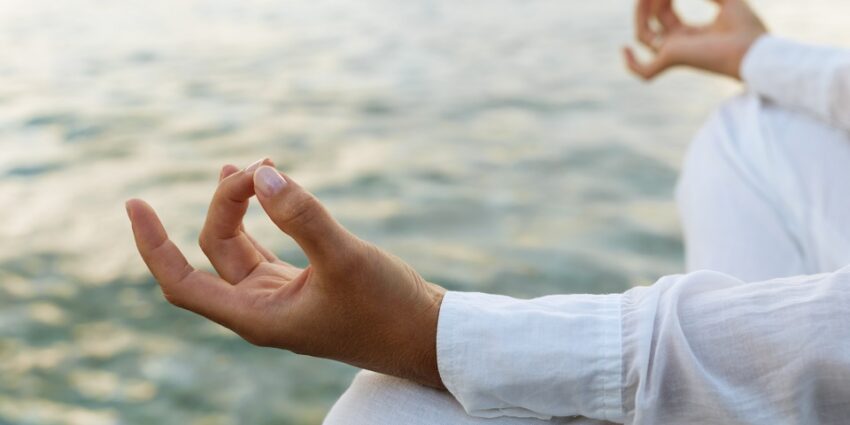In today’s fast-paced world, stress has become a pervasive companion. From work deadlines to financial pressures, the constant barrage of demands can take a toll on our mental and physical well-being. However, chronic stress isn’t just about feeling overwhelmed; it can negatively impact our sleep and concentration, and even weaken the immune system. The good news is, that effective relaxation techniques exist to help us manage stress and cultivate inner peace.
This article delves into various relaxation techniques, offering practical guidance and insights for both beginners and those with some existing knowledge. By incorporating these practices into your daily routine, you can build resilience against stress and pave the way for greater success in all aspects of life.
Understanding Stress and the Relaxation Response
Stress, in itself, is not inherently bad. It’s a normal physiological response that prepares our bodies to deal with challenges. However, when stress becomes chronic, the “fight-or-flight” system remains constantly activated, leading to a cascade of negative effects.
This is where relaxation techniques come in. They help activate the body’s “relaxation response,” a state characterized by lowered heart rate, blood pressure, and muscle tension. By triggering this response, we can counteract the detrimental effects of chronic stress and promote feelings of calm and well-being.
Mind-Body Techniques for Relaxation
1. Deep Breathing: This simple yet powerful technique is a cornerstone of relaxation practices. Focus on slow, deep breaths, inhaling through your nose for a count of four and exhaling slowly through your mouth for a count of six. Repeat this cycle for several minutes, allowing your body to unwind with each breath.
2. Progressive Muscle Relaxation (PMR): PMR involves systematically tensing and relaxing different muscle groups throughout your body. As you tense each group, hold for a few seconds, then release completely and focus on the feeling of relaxation. This technique promotes awareness of physical tension and helps you learn to let go.
3. Mindfulness Meditation: Mindfulness meditation cultivates present-moment awareness and non-judgmental observation of your thoughts and feelings. By focusing on your breath or a mantra (a repeated sound or phrase), you learn to detach from stressful thoughts and cultivate inner peace. There are numerous guided meditations available online and through apps to help you get started.
4. Visualization: Visualization involves creating mental images of a calming and peaceful place. Imagine yourself on a serene beach, surrounded by gentle waves and soothing sounds. Focus on the sensory details – the warmth of the sun, the feel of the sand beneath your feet, the sound of the ocean breeze. This technique allows you to escape from stress and create a sense of sanctuary within your mind.
5. Yoga and Tai Chi: Combining gentle physical movements with breathwork and meditation, yoga and tai chi offer a holistic approach to relaxation. These practices improve flexibility, balance, and body awareness, while simultaneously promoting mental well-being. Numerous beginner-friendly classes and online tutorials are available to guide you.
Creative and Activity-Based Relaxation
1. Spending Time in Nature: Immersing yourself in nature is a powerful stress reliever. Take a walk in a park, hike in the woods, or simply sit outside and listen to the sounds of birds chirping. Studies have shown that spending time in nature reduces stress hormones and promotes feelings of calmness.
2. Listening to Music: Music can be a powerful mood elevator. Create a playlist of calming melodies or nature sounds to help you unwind after a long day.
3. Engaging in Hobbies: Dedicating time to activities you enjoy creates a sense of fulfillment and allows you to escape from daily pressures. Whether it’s painting, reading, playing music, or spending time with loved ones, engage in hobbies that bring you joy and a sense of accomplishment.
4. Spending Time with Loved Ones: Strong social connections are essential for well-being. Talking to a close friend, spending quality time with family, or participating in social activities can help reduce stress and provide a sense of belonging.
5. Laughter Therapy: Laughter is not just the best medicine; it’s also a great stress reliever. Watch a funny movie, read a comic book, or spend time with someone who makes you laugh. Laughter triggers the release of endorphins, which have mood-boosting and stress-reducing effects.
Finding the Right Technique for You
The key to effective relaxation is finding practices that resonate with you. Experiment with different techniques and discover what works best for your needs and preferences. Some people find solace in the quiet solitude of meditation, while others thrive with the gentle movements of yoga. Don’t be afraid to combine different techniques for a well-rounded approach to relaxation.
Tips for Building a Relaxation Routine
1. Schedule Time for Relaxation: Treat relaxation just as seriously as any other appointment. Schedule specific times in your day
for relaxation practices, even if it’s just for 10-15 minutes. Consistency is key, so aim to practice regularly, even on busy days.
2. Create a Relaxing Environment: Find a quiet and comfortable space where you won’t be interrupted. Dim the lights, light some calming candles, or play soothing music to create an ambiance conducive to relaxation.
3. Be Patient and Kind to Yourself: Learning a new relaxation technique takes time and practice. Don’t get discouraged if you don’t experience immediate results. Be patient with yourself and focus on the progress you make over time.
4. Track Your Progress: Keeping a journal or using a stress-tracking app can help you monitor your progress and identify which techniques are most effective for you.

Beyond Relaxation Techniques: Addressing the Root Causes of Stress
While relaxation techniques are invaluable tools for managing stress, it’s also important to address the root causes of stress in your life. Consider the following:
-
Time Management: Feeling overwhelmed often stems from poor time management. Learn effective time management skills to prioritize tasks, delegate when possible, and set realistic deadlines.
-
Setting Boundaries: Setting healthy boundaries with work, colleagues, and even family can help you reclaim control of your time and reduce stress. Learn to say “no” when necessary and prioritize your well-being.
-
Cognitive Reframing: The way we perceive situations significantly impacts our stress levels. Challenge negative thought patterns and learn to reframe stressful situations in a more positive light.
-
Seeking Professional Help: If chronic stress significantly impacts your daily life, consider seeking help from a therapist or counselor. They can provide valuable tools and strategies for managing stress and improving your overall well-being.
Related: What Are the Techniques for Stress Relief?
Conclusion: De-stress for Success
By incorporating relaxation techniques into your daily routine and addressing the root causes of stress, you can cultivate inner peace and resilience. Remember, managing stress is an ongoing process. Experiment with different techniques, find what works for you, and be patient with yourself. When you prioritize your well-being, you’ll be better equipped to navigate life’s challenges and achieve success in all areas of your life.





